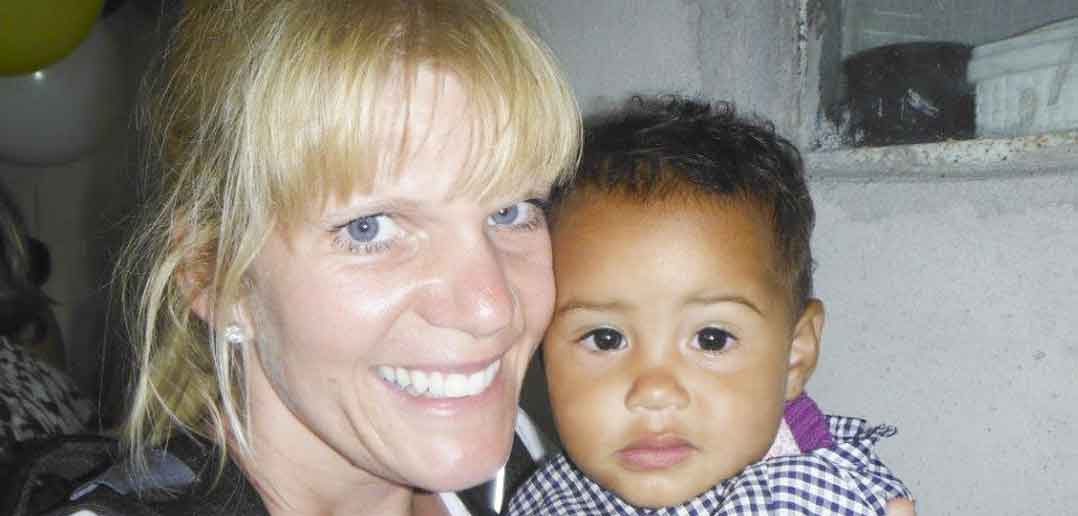MANITOULIN—Amie Morphet of Green Bay had always felt drawn to go on a mission trip and when the call went out from the Samaritan’s Purse organization for volunteers for the delivery of their iconic Christmas shoebox campaign, she jumped at the opportunity.
“I was really motivated by the shoebox campaign and when our minister brought the application, I said to myself ‘this is my sign’,” she said.
Filling out the application is no guarantee of getting a spot on one of the Samaritan Purse mission teams, but it was just a little while later that Ms. Morphet learned that she had been selected to accompany (and deliver) the shoeboxes destined for Uruguay. While it was quite a long trip to that South American country, it was hardly a hardship, she noted.
“We drove to the airport in Toronto and then flew from there to Miami, Florida,” she said. “From Miami we flew to Montevideo (the capital of Uruguay). It was a total of 14 hours of flying.”
Ms. Morphet explained that Uruguay is located on the southern tip of the South American continent and it was definitely warmer than the minus 40 degree weather she left behind on Manitoulin, gripped as it was in an unusually frigid February. “I was quite shocked when I got off of the plane and it was sweater weather,” she said. Montevideo, it seemed, was experiencing an unusual cold snap itself. “The only sweater I had with me was the one I was wearing on the plane,” laughed Ms. Morphet. “But God blessed us with some beautiful weather. The rest of the trip the temperatures were closer to 28-plus degrees.”
Ms. Morphet and the rest of the Samaritan Purse mission team travelled around the middle of Uruguay delivering packages to the children of impoverished families. “A lot of the children were the less fortunate of the less fortunate,” she said. “Many came from abusive homes and alcoholic parents.”
[pullquote]For Ms. Morphet and her compatriots, the opportunity of bringing a little joy to those children’s lives was priceless. “We went around brightening those children’s days with the shining hope of Jesus,” she said.[/pullquote]
South America has a reputation of being a staunchly Christian bastion, but that was not the case in Uruguay, noted Ms. Morphet. “There are a lot of grand churches, but they are all locked,” she said. “In a country of three million people, only about two percent of the country have faith. It is a very atheist country.”
In fact, the Samaritan Purse mission teams were not allowed to talk about God or anything religious in public at all, she said.
“We had to bring the children to the church and they would bring their parents and their friends,” said Ms. Morphet. “Otherwise we would have been in big trouble.”
Ms. Morphet said that despite the restrictions, she deeply felt the presence and influence of God with the unveiling of the contents of each and every box.
“He had a name on each shoebox and what was in each box specifically fit the child I handed it to,” she said. “One child came from a family whose mother had a mental illness and the father was an alcoholic. They only had enough money to send one of their children to school and they decided to send a little girl. The little boy was left out.”
Within the shoebox she handed to the young boy were enough school supplies to last for at least two years. “It was packed full of school supplies,” she said. The joy of a young boy who would be able to go to school might prove a valuable object lesson to North America’s youth, too often needing to be dragged to the bus stop each morning lamenting their burden. To this young man, a future of opportunities was opened up with a box full of pencils, crayons and paper.
“It was something I saw repeated over and over again with every box I handed out,” said Ms. Morphet.
Uruguay is a mainly flat country, explained Ms. Morphet, but the landscape was surprisingly familiar. “There are a lot of the same trees, pines and maples,” she said. But with a surreal twist. “Mixed in are palm trees and oleander. It was weird.”
The people living in the city were dressed like those you would find in any modern western downtown urban setting, but in the country the people were dressed in the worn-out castoffs of the big city. “Their clothes were dirty and tattered, what you would expect of people who had nothing,” she said.
Her mission actually had an unexpected spinoff—bringing awareness to the urban population of how the people in the countryside live. “The people in the cities have no idea,” said Ms. Morphet. “It was nice to open their eyes. Maybe they will bring their older clothes that they have no use for and give them to the people who need them. There are people in the countryside who are living off of garbage.”
Ms. Morphet’s own eyes were opened by her experience. “Now I truly understand the importance of the mission ten times over,” she said.




